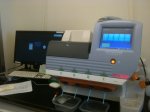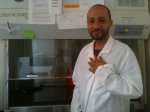aimossy
Senior Member
- Messages
- 1,106
Facebook:
ME/CFS stories:
The main reason that I’m keen on this research is probably the same as everyone else – recognition, effective treatment and cure. It seems to me that this research is on the right track in looking at bacteria, viruses and fungi. It seems to me that there must be something which is causing an upset in susceptible individuals and that the body’s stress response plays a part in allow...ing the culprit to do its mischief.
I feel especially sorry for the young people with ME and even if it’s too late for me, would like to see something which can help these people live a halfway normal life when they grow up, so they can study, achieve some of their dreams, have families and have the energy to look after and play with their children, travel, etc.
I’m 60 years old and live in Australia. I was diagnosed 5 years ago, when I was feeling unusually fatigued nearly all of the time and then pretty much ground to a halt, unable to get out of bed in the morning. In hindsight I realised that a somewhat similar crash I had in 2006 was the first major ME flare. About a year before this, in mid-2005, I developed unexplained skin rashes for weeks and felt under par, although not very sick. I think this may have been viral illness, and/or something picked up after being bitten by insects on holiday in New Zealand a few weeks earlier.
I was working as an IT business analyst/project manager when diagnosed. After long periods off work and then trying to return part-time, found that I couldn’t increase my hours and kept relapsing. I finally had to stop work in March 2013, claiming Total and Permanent Disability insurance.
Major impacts on my life have been having to give up work, most of a social life, and the ending of a long marriage. Fortunately I do have good friends who have stood by me, but on the whole I am much more isolated, not having the social interaction which came with my workplace (working as part of a team) and most of the time not being able to act spontaneously upon ideas to do interesting things with other people. Because of sensory overload, I can’t tolerate noisy or busy places for long at all without suffering ill effects and needing to lie down.
I think I am generally better now that I’m not working, but my activities have to be planned and limited. I think that the doctor estimated that I was functioning at about 20% capacity at the time I stopped work. I could be up to 30-40% these days, although it varies from day to day, week to week, month to month.
Fatigue and brain fog are probably the most debilitating.
Faecal analysis showed overgrowth of streptococcus and undergrowth of e.coli. Wishing you all the best and here’s hoping for at least one answer to part of the puzzle…
Kind regards, Anonymous
.......................................................................................................
Thank you so much for your story! We appreciate them greatly. So many people out there can identify and have untold stories. Hundreds of thousands of them--many do not even know they have ME/CFS. This illness has been ignored for too long and is a public health concern.





